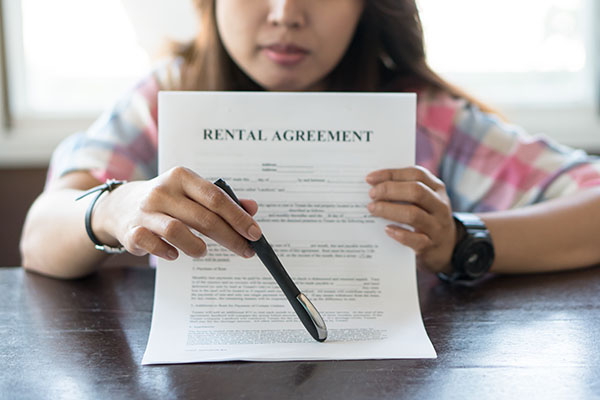Utility Service for Tenants (Submetering)

Tenants should understand how to receive and pay for utility services before signing a lease agreement. This fact sheet from the Office of the Ohio Consumers’ Counsel (OCC) provides important utility information for tenants of a house, apartment or building complex.
Renters should ask the landlord who is responsible for paying the utilities before signing a lease agreement. And the lease should say who is responsible for setting up utilities, which utilities and how the renter will receive and pay for utility services.
If the utilities are not included in rent, the renter is responsible for setting up services and paying the bills. If the landlord has an agreement with the utility companies, the charges could be included in the rent. Then, the landlord would also be responsible for establishing service.
Master meters
In locations with multiple apartments, condominiums, and mobile home parks, a master meter (single meter) may be used to measure the total amount of electricity, natural gas, or water used. Master meter utility service is required to be in the landlord’s name. The landlord may divide utility costs among each of the units based on square footage, the number of occupants, or other factors such as common areas. Check with the landlord for how this is calculated.
If utilities are master metered, it may not be easy to control the cost of the bill. Utility assistance and programs to reduce consumption are not typically available to master metered buildings since customers are not individually billed.
Avoiding disconnection
If the utilities are in the landlord’s name and the bill becomes delinquent, service could be disconnected. Before a disconnection can occur, regulated utility companies will provide the landlord with a 14-day notice. If the landlord fails to act, the utility company will provide a 10-day notice to each tenant receiving master metered service. The disconnect notice will explain ways tenants can prevent disconnection. Contact the utility company for options.
For example, a consumer could set up an escrow account with local courts. An escrow account is a third-party account set up in local court to hold money on behalf of the renter and landlord. Payments are made to the local court or court clerk instead of the landlord. An escrow account can be used to pay utility bills to prevent disconnection.
When multiple people live in the household, the person’s name that is on the utility account is who is responsible for the bill. If that person moves out and still owes the utility, service can be established in another tenant’s name. The company may require proof that the former tenant owing money no longer lives at the premises. It is important to contact the utility to discontinue or transfer service if moving to a new location. If a tenant leaves the premises and does not notify the company, any outstanding debt may be sent to a collection agency. OCC’s “Your Guide to Energy Disconnection and Reconnection” fact sheet at www.occ.ohio.gov/factsheet/energy-disconnection-and-reconnection provides more information. Another source of utility information is www.occ.ohio.gov/utilityassistance.
Repairs
Refer to the lease agreement to determine who is responsible for any repairs and maintenance to the utility lines. Tenants should contact the utility about issues with the lines when the account is the tenant’s responsibility. Tenants should contact the landlord about any utility line repair or maintenance issues when the account is in the landlord’s name. Insurance or warranty programs are available but may not be in the renter’s best interest, especially when the renter is not responsible for the utility lines. See OCC’s “What You Need to Know About Utility Line Warranties” at www.occ.ohio.gov/factsheet/utility-line-warranties for more information.
Submetering
Some housing communities could be submetered for electric, natural gas, water and/or sewage.
Submetering is when a landlord or third-party purchases utility services and resells the service to consumers using a submeter. The submeter records the usage of each housing unit (i.e apartments, condominiums, and mobile home lots). Consumers are billed by the submetering company instead of the utility.
Submetering companies can earn a profit by charging various fees that utilities cannot.
Currently in Ohio, submetering is not regulated the same way that direct service from utility companies is. Submetering consumers may lack certain protections afforded to direct customers, such as disconnection safeguards and bill-payment assistance programs.
The OCC is working with lawmakers and regulators to address concerns about submetering. Submetering legislation has been introduced, and complaint cases have been brought before the Public Utilities Commission of Ohio (PUCO).
For more information on submetering legislation, visit www.occ.ohio.gov/submetering. The PUCO also answers frequently asked questions about submetering on its website, www.puco.ohio.gov.
To download: Click the folder with a down arrow icon. To print: Click the printer icon in the top right of the display.
If you need multiple copies for an organization or group, please contact a member of our outreach team.
